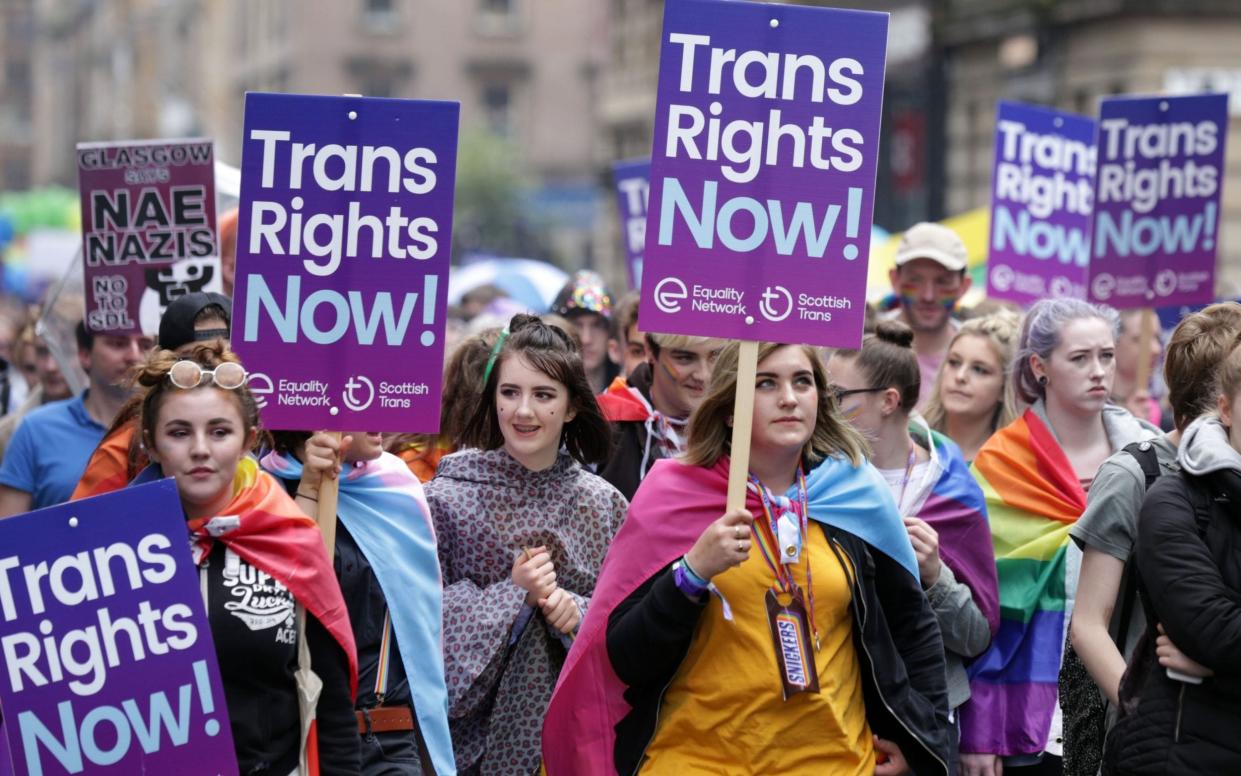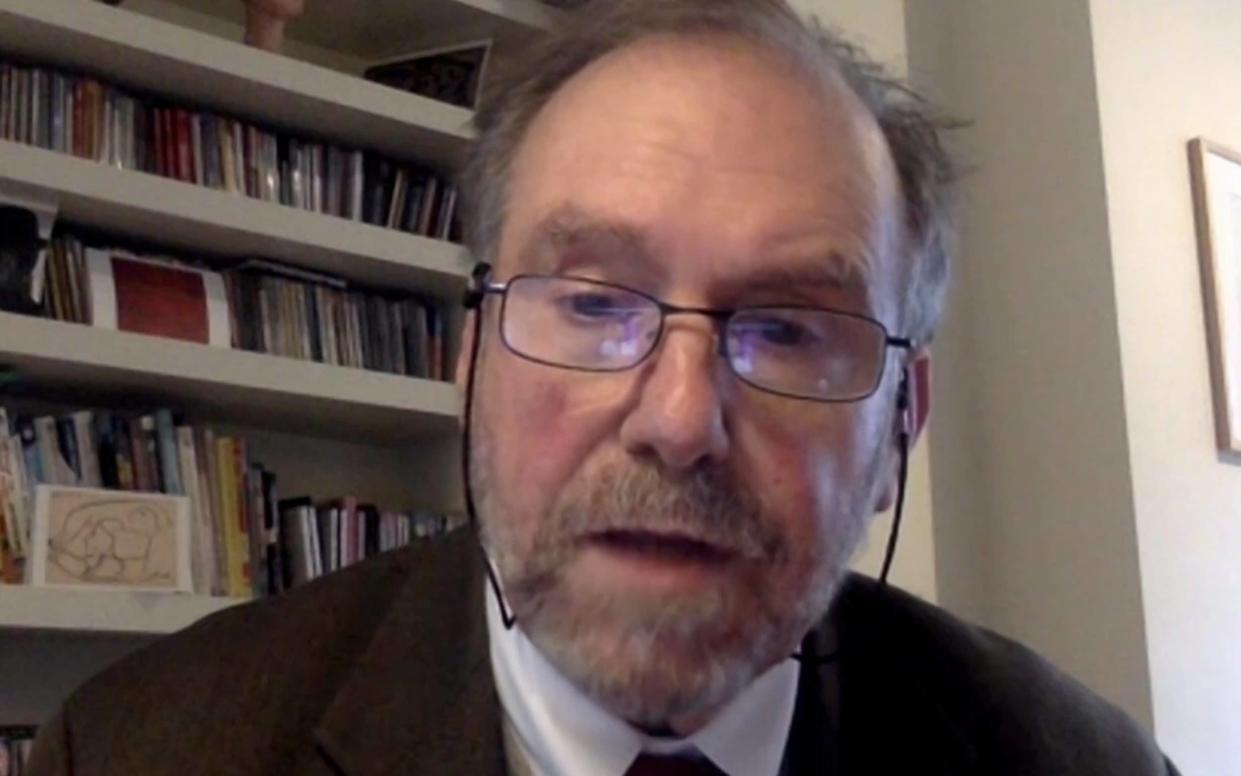SNP accused of allowing trans activists to infiltrate Scottish NHS

SNP ministers have been accused of allowing trans rights activists to infiltrate Scotland’s NHS and shape dangerous treatment rules that are harming children.
Research by The Telegraph has identified more than 70 occasions in which partisan LGBT campaigners have been given roles allowing them influence over gender care in Scotland’s health service, despite a lack of any medical training or expertise.
The findings come after paediatrician Hilary Cass warned that ideology, rather than established medical practice, had shaped how gender healthcare was delivered to young people in England in her damning report about gender youth services.
It led to children being given potentially dangerous drugs such as puberty blockers and hormones, despite a lack of evidence of safety or effectiveness.
SNP ministers and NHS Greater Glasgow and Clyde, which runs the Sandyford gender clinic dubbed a “tartan Tavistock”, have said they will review Dr Cass’s findings but have refused to commit to following her recommendations.
The “affirming” model of care being abandoned south of the border is still being delivered in Scotland with Humza Yousaf and the Scottish NHS also refusing to adopt England’s ban on puberty blockers.
Among the examples of activists’ influence in Scotland are formal roles in setting long-awaited trans treatment rules for Scotland, writing policies that would erode rights to single-sex hospital wards and being funded to run mental health services.
Controversial treatment rules
Scottish Trans, an influential lobby group, has also claimed credit for having the Scottish NHS sign up to controversial treatment rules set by the US body WPATH, which Dr Cass denounced in her review and said should not be used by the health service.
David Bell, the psychiatrist and whistleblower who first raised concerns about Tavistock in London, said it was “patently obvious” that partisan campaigners should not have a “seat at the table” when NHS gender policies were being set.
“The Cass Review has been quite clear that this area of healthcare has departed substantially from established healthcare standards and has been so captured by ideology,” Dr Bell said.
“It is deeply worrying to find that the Scottish Government and NHS have allowed infiltration of the health service to such an extent. We are now dealing with the terrible consequences for children.
“They must now immediately implement the findings of the Cass review, shut down the Sandyford and finally provide young people with a service that is based on science and not ideology.”
Representatives from groups such as Stonewall, the Equality Network and the LGBT Youth Scotland have been handed roles on Scottish government working groups to consider gender policies on at least 26 occasions since 2021.
They have also been commissioned by health boards to help write official policies on issues such as single-sex hospital wards.
One such document, published by NHS Ayrshire and Arran written with the help of Scottish Trans, suggested women who objected to sharing a ward with a biological man were comparable to racists.

A National Gender Identity Healthcare Reference Group, set up in 2022, includes four trans rights activists while the National Gender Identity Clinical Network for Scotland’s steering group has six.
Unnamed representatives from the “third sector”, including LGBT Youth Scotland, have also been allowed to help shape Scotland’s new, as yet unpublished, gender reassignment protocol.
Groups they have sat on have pushed behind the scenes to ensure new treatment rules reference WPATH guidelines, which Dr Cass said were deeply flawed, and to “ensure young people aged 16 can access hormones”.
Meanwhile, several Scottish health bodies have signed up to a “charter scheme” run by LGBT Youth Scotland.
In contrast, there has not been a single occasion when a gender critical campaigner, or an external body to have publicly expressed concern about “affirmative” trans healthcare, has been given a formal role on a NHS or Scottish government body considering trans issues.
Scottish government insiders insisted that despite the disparity, the NHS clinicians also sitting on the groups had a wide range of views.
‘Ideology directs care’
Dr Cass’s report called for gender services to operate at “the same standards” as other health services.
She said: “I think it’s definitely the case that ideology on all sides has directed care, rather than care being directed by normal principles of paediatrics and mental health.”
In total, The Telegraph identified 76 separate occasions when activists had been given the opportunity to influence NHS Scotland policies on transgender healthcare.
Scottish Trans said it was “pretty worried” about Dr Cass’s findings and warned they could not be applied to a “Scottish context”.
The group said it was concerned by the implication that transition to live as a member of the opposite sex for children should be seen as a “last resort”.
Meghan Gallacher, the deputy leader of the Scottish Tories, said: “It is deeply concerning that campaigners and activists are influencing sensitive policy relating to the gender services provided to young people by the NHS.
“The wellbeing of children should be the top priority and medical experts are the only people that are qualified to weigh in and make these important decisions.”
A Scottish government spokesman said: “Engagement with stakeholders, including those that could be impacted by service or policy change, is standard practice in the public sector.
“NHS boards and integration joint boards have a statutory duty to involve people and communities in the planning and development of care services, and in decisions that will significantly affect how services are run.”


